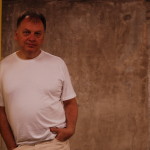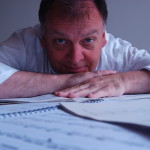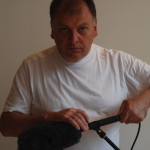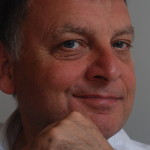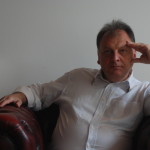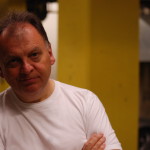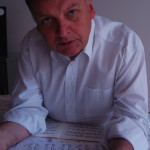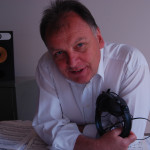Biography
Robert Worby is a composer, sound artist, writer and broadcaster based in London. His work is rooted in a fascination with sound – its characteristics, its textures, shapes and patterns – and the idea that, when sounds are combined, meaning becomes multi-faceted, slippery and difficult to pin down. These preoccupations inform nearly all his work and fuel an insatiable curiosity.
He began his work as a composer and sound artist in the mid 1970s – before the term ‘sound art’ was in use – when he made audio pieces, collaborating with experimental film makers and performance artists. Towards the end of the 70s he played guitar and tapes in a post-punk band called The Distributors. ‘Shattered metallic dub funk’, said the NME. The band released several singles, recorded two Radio 1 sessions for John Peel and played regularly with This Heat, The Raincoats and other seminal bands of that era.
In the 1980s Robert received awards from the Arts Council of Great Britain to work as a composer and undertake a number of residencies. He developed his work with electronic music and presented workshops, in all kinds of situations, that encouraged people to make music with new technology. At this time he also worked with The Mekons, a band that achieved considerable success in the USA and Europe. But his career in pop music came to an abrupt halt when, in 1989, he was invited to work with John Cage, at the Huddersfield Contemporary Music Festival.
Throughout the 1990s he expanded his work in electroacoustic music, focusing particularly on music for contemporary dance. He also continued and developed collaborative work with the video artist Jeremy Welsh, with whom he has been working since the mid 1970s. Their work – which has been shown throughout Europe, in the Americas and in Australia – continually confronts the dominant, received relationship between sound, image and observer prevalent in popular media. In 1994 he began assisting the composer Michael Nyman working on several films, concert music and the opera ‘Facing Goya’.
In the mid 90s Robert began broadcasting on Radio 3 presenting a five part series entitled ‘Cacophony Now!’ that explored how dissonance and noise, interface with contemporary music. Since that time he has become a regular presenter of ‘Hear and Now’, the BBC’s main contemporary music programme, and has made several features on subjects including the work of Daphne Oram, the founder of the BBC Radiophonic Workshop, and the music of the notorious Futurist composer and painter, Luigi Russolo. Along with colleagues from the BBC and Sonic Arts Network, Robert founded the Cut & Splice festival of electronic music and sound art in 2002.
Through the use of obsolete, abandoned technology, Robert’s latest works hark back to the earliest days of electronic music making. Recent works have utilised shortwave radio, tape machines and analogue devices like sine wave oscillators. Shapechanger is a sound installation, made of discarded hi-fi speakers, that is based on the saga of the Viking chronicler Egil. A collaborative electronic score for the German Expressionist film ‘The Cabinet of Dr Calligari’ uses sounds found between the stations on the radio dial. And several new pieces use sine wave oscillators, that were built for Karlheinz Stockhausen in the early 80s, and discovered languishing in a forgotten cupboard not far from where the Radiophonic Workshop was once located.
Images
These photographs may be used in publicity for events involving Robert Worby. Please credit the photographer Felix Carey with the text ‘Photo: Felix Carey’
